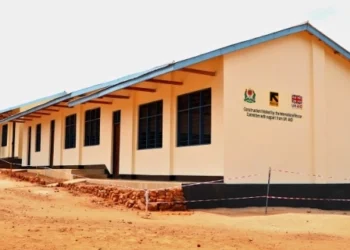A wave of teacher-led resistance continues to rise in Zimbabwe as members of the Amalgamated Rural Teachers Union of Zimbabwe (ARTUZ) staged a bold protest in Manicaland Province on Monday, demanding living wages and dignified working conditions.
With placards in hand and voices unified in frustration, the teachers called on the government to increase their salaries to at least US$1,260 per month, up from their current US$300, which many say is no longer enough to cover basic necessities like healthcare, rent, and education for their children.
“We are sick and tired of the peanuts that we are being paid,” declared one protester. “It is high time we demanded better—our children deserve access to quality education just like the children of the elites.”
Beyond salary grievances, ARTUZ members also demanded:
Effective collective bargaining structures
Restoration of three-month vacation leave
Introduction of paternity leave for male teachers
Improved workplace conditions reflecting the professional status of educators
The protest followed a national call to action by ARTUZ President Obert Masaraure, who has been vocal about the systemic neglect of teachers in Zimbabwe’s rural areas.
“Our profession is under attack. It’s time to fight back,” read an official ARTUZ statement on social media.
This grassroots protest joins a wider movement within Zimbabwe’s education sector. Lecturers at the University of Zimbabwe have also been on strike for over 60 days, further highlighting the growing unrest over deteriorating conditions in the public service sector.
The teachers’ actions reflect a mounting frustration among civil servants in Zimbabwe, who feel increasingly sidelined in national conversations despite being essential to nation-building.
As education continues to be the cornerstone of national development, ARTUZ’s protest sends a powerful message: teachers can no longer be treated as afterthoughts in economic planning.


















































































 EduTimes Africa, a product of Education Times Africa, is a magazine publication that aims to lend its support to close the yawning gap in Africa's educational development.
EduTimes Africa, a product of Education Times Africa, is a magazine publication that aims to lend its support to close the yawning gap in Africa's educational development.